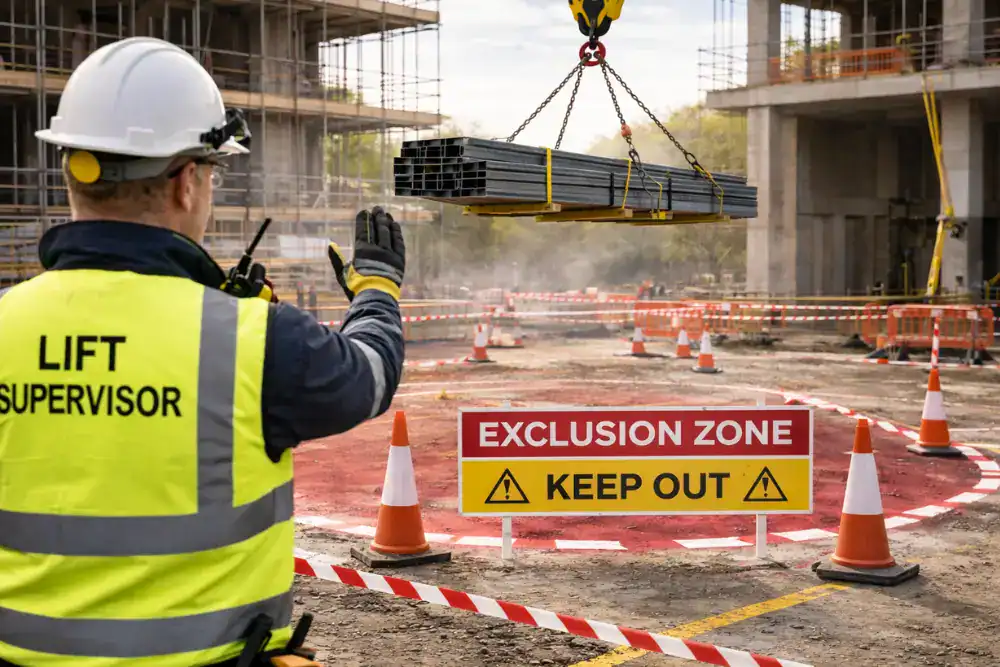
By law, employers are accountable for preventing discrimination, harassment and unfair treatment. In practice, it’s managers who are responsible for implementing the policies that uphold dignity at work.
This guide outlines the practical skills managers need to build a workplace culture where respect, wellbeing and performance are actively supported.
Whether you’re refining existing practices or preparing new policies, the steps listed here will help you lead with clarity and confidence.
Key Takeaways
- Managers must be familiar with the Equality Act 2010, the Health and Safety at Work Act 1974, and the Worker Protection Act 2023.
- Acting early, following fair processes and communicating clearly helps protect wellbeing and reduce the risk of work-related stress, depression and anxiety.
- Dignity, harassment and grievance policies must be applied consistently, referred to regularly, and explained using clear, inclusive language.
- Staff must know how to raise concerns and where to find support.
What the Law Says About Dignity at Work
As a manager, you set the tone for dignity at work. That means setting clear expectations, responding to concerns fairly and applying your organisation’s policies in line with the law.
To do that well, you need to understand the key legal duties that protect dignity at work in the UK:
- The Equality Act 2010 makes discrimination based on protected characteristics like age, race, sex, disability or religion illegal. It also outlaws sexual harassment.
- The Health and Safety at Work Act 1974 requires employers to take “reasonably practicable” steps to eliminate or control work-related risks to both physical and mental health.
- The Worker Protection Act 2023 reinforces the Equality Act 2010 by making it an employer’s legal duty to prevent sexual harassment, not just respond to it.
Make sure you understand how these duties apply in day-to-day management. Acting early, applying policies consistently and responding fairly helps you create a workplace where dignity is part of how your team operates every day.
Risk Assessment (Including Psychosocial Risks)
By law, work-related risks to both physical and mental health must be controlled.
It’s typically more straightforward to manage physical hazards, such as dangerous equipment or potential slip and trip hazards.
But if you’re not paying attention to your team’s culture, you’re missing some of the biggest psychological risks. Bullying, exclusion, workload pressure and unclear roles can all cause harm and often go unnoticed until they start affecting performance.
In 2023/24, work-related ill health and injury cost the UK 33.7 million working days. Stress, depression and anxiety alone were behind 16.4 million of those days. If you’re not managing these risks, you’re opening the door to legal problems, lost productivity and high staff turnover.
Here’s what you need to do:
- Carry out risk assessments that take into account workload pressures, team dynamics and sources of stress.
- Involve staff in identifying risks through anonymous surveys, regular feedback and one-to-one discussions.
- Put preventative measures in place, including clear role expectations and fair distribution of tasks.
- Reassess risks whenever there are changes, such as restructures, onboarding new staff or seasonal increases in demand.

Policy and Procedural Awareness
You need to know your organisation’s dignity, anti-harassment, grievance and whistleblowing policies, and you need to apply them consistently.
If you delay, pick and choose when to act, or fail to follow clear procedures, you risk undermining trust and exposing your organisation to serious legal and reputational damage.
Here’s what you need to do:
- Document concerns accurately and objectively, even if they seem minor at first.
- Escalate issues when informal action isn’t enough to resolve them.
- Follow formal procedures fairly and involve HR or senior leadership when required.
Everyday Leadership in Practice
Knowing the policies is one thing. Applying them consistently, every day, is where real leadership happens. The way you respond to concerns, apply standards and set expectations shapes your team’s culture.
When you lead well, you build trust, stop small problems from escalating and show that dignity at work is more than words. When you let things slide, you allow issues like exclusion, work-related stress or persistent low-level conflict to grow into bigger risks.
Most dignity problems don’t start with formal complaints. They show up first in subtle ways – people being left out, tasks piling onto the same few employees, team tensions you can feel but aren’t yet reported.
You need to spot those signs early and act on them:
- Raise and refer to dignity policies regularly, especially during onboarding, team meetings and performance reviews.
- Document concerns accurately and apply procedures fairly and consistently.
- Make sure support routes are clear and accessible so staff know how and where to raise issues.
- Support training that reinforces behavioural expectations and helps your team understand what respect looks like in practice.
Health and Safety Courses
Our health and safety courses support legal compliance and effective risk management. They raise awareness of common workplace hazards and teach the fundamentals of safe working.
Clarity in Communication
Silence is not always a sign that everything is fine. According to UK Parliament findings, more than half of employees who experience bullying never report it. Unclear and inconsistent communication makes it harder for people to speak up, increasing the risk of unresolved problems and harm to well-being.
Policies only protect dignity at work when employees understand them and know how to use them. You play a critical role in making sure that happens. Staff need to be clear about their rights, what’s expected of them and steps to take if something goes wrong.
You can make a difference by building clarity into everyday practice:
- Refer to dignity policies regularly during onboarding, team meetings and performance reviews.
- Make sure staff know where to get help, including confidential reporting lines, HR contacts and wellbeing resources.
- Communicate in plain, inclusive language that avoids legal jargon and is understood by your whole team.
Small actions like these help create a workplace where employees know their options, trust the process and feel safe using it.

Active Listening
You need to listen carefully if you want to catch concerns about dignity at work before they grow into bigger problems.
The way you listen has a direct impact on whether staff feel safe raising concerns. If they don’t feel understood, small problems can quickly escalate into formal complaints, damaged trust and long-term harm to well-being.
Here’s what you need to do:
- Give your full attention during conversations. Avoid distractions and stay focused on the person speaking.
- Ask open, thoughtful questions that encourage people to explain their concerns fully.
- Pay attention to tone, body language and pauses that may hint at underlying issues.
- Follow up early to show that concerns are taken seriously and that action will be considered.
Good listening builds trust, shows staff that concerns will be taken seriously and helps you act before issues escalate. Listening properly means spotting the signals early enough to make a difference, not waiting for problems to grow.
Empathic Response
When employees raise concerns about bullying, harassment or unfair treatment, the way you respond makes a difference. These conversations often involve sensitive details and can come after weeks or even months of hesitation.
A dismissive or overly procedural response can discourage future reporting and increase the risk of disengagement, absence or formal complaints. You need to show that concerns are taken seriously and will be handled fairly.
This starts with how you listen and how you react. You need to:
- Stay calm and be attentive even if the disclosure is unexpected.
- Listen without judgement or defensiveness.
- Acknowledge the effort it took for the employee to speak up.
- Explain clearly what the next steps will be, without rushing to conclusions or offering false reassurance.
A measured, empathic response builds trust, supports wellbeing and gives you the best chance of addressing concerns properly before they escalate.
Conflict Resolution
If you want to protect dignity at work, you can’t afford to leave conflict unresolved. Issues like exclusion, bullying and formal complaints often start with minor tensions that are left to grow.
The Worker Protection Act 2023 puts a legal duty on employers to take proactive steps to prevent sexual harassment. As a manager, you’re expected to monitor the workplace and act before problems escalate.
Here’s what you need to do:
- Monitor team interactions and pick up on patterns of friction, exclusion or rising tensions.
- Use one-to-ones to raise issues early and give staff a chance to speak openly.
- Focus on behaviours and their impact, not on personal traits or personalities.
- Encourage informal resolution where possible before taking formal steps.
- Keep clear, accurate records and follow up to make sure concerns have been properly addressed.
Putting It All Together: Why Dignity at Work Starts with Managers
Dignity at work depends on the choices you make every day. You set expectations, respond to concerns and model the behaviours that shape how your team works together.
To do this well, you need to understand your legal duties, manage risks early, communicate clearly and apply procedures fairly. But culture isn’t built by managers alone. Your team also needs to recognise what dignity looks like, where the boundaries are and how to speak up when something feels wrong.
Our Dignity at Work Training is designed to support these needs. It helps employees understand their role in creating a respectful working environment and gives them the awareness to act when needed. The course covers:
- What dignity at work is and why it matters
- Legal duties around harassment, discrimination and unacceptable conduct
- How to recognise bullying, exclusion and inappropriate behaviour
- Why certain behaviours are not acceptable, even if they’re unintentional
- When and how to raise concerns through the right channels
- How to contribute to a workplace where respect is the standard
A shared understanding across your team helps prevent problems, reduces the pressure on you to resolve everything alone and strengthens the culture you’re working hard to protect. Whether you’re updating internal practices or responding to new duties under the Worker Protection Act 2023, this training gives your team the clarity they need – and gives you the confidence that dignity at work is being taken seriously at every level.





















